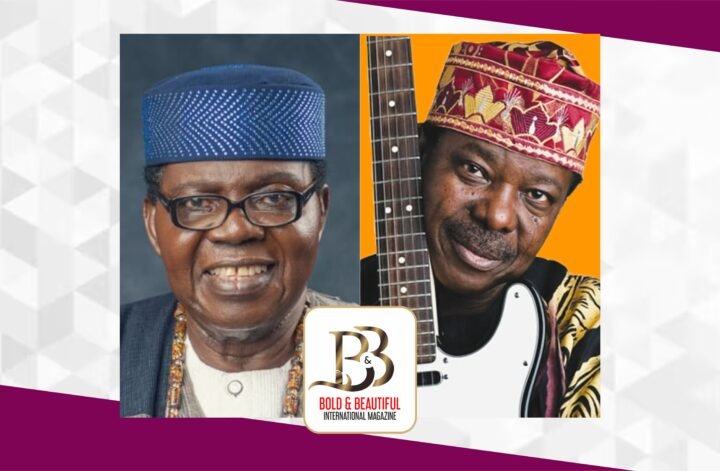Since the introduction of the era of TikTok, Instagram Reels, and YouTube shorts into the digital landscape, Africa’s musical heartbeat has been pulsating across the globe. The driving force behind this phenomenon is not just the genre but the authentic African identity embedded in the music. The continent’s artists are not only propelling Africa onto the global stage but are also transforming Africa into a global musical epicenter.

The ubiquity of foot-tapping dance challenges, from Uncle Waffles’ Yahyuppiyah to Davido and Musa Keys’ Unavailable dance, and the global sensation Jerusalema, underscores the undeniable influence of African music. As we delve into the star-studded entertainment industry, it’s clear that the conversation has evolved from a continental shift in 2022 to a full-blown global paradigm in 2023. The rise of Amapiano and Afrobeats, coupled with the amplifying power of social media, has propelled African music to unprecedented heights.

Davin Phillips, Executive Director at Celebrity Services Africa, emphasizes the role of social media in connecting the world with African artists. “Social media, maybe more technology, has allowed us to go into other regions across the continent that previously didn’t have access to certain streaming or publishing. We’ve been able to identify the continent a lot more and bring it together,” he says.
Phiona Okumu, Head of Music for sub-Saharan Africa at Spotify, concurs, noting that social media has amplified the careers of many African artists. “Reaching a global audience, instantly, looked different a few years ago and required significant resources. But now, on the back of social media, accessibility has taken a new form for artists.”

The surge of fresh talent in the industry reflects this newfound accessibility. Young artists like Uncle Waffles from eSwatini, Nigeria’s Rema, and South Africa’s Musa Keys have swiftly risen to international acclaim. Advocating for the impact of the internet, Katlego Malatji, Head of Legal and Business Affairs at Sony Music Africa, acknowledges that the internet has created opportunities for young and diverse acts to emerge.
However, the virality that social media brings raises questions about the sustainability of these careers. Malatji points out, “Sustainability being obviously a different question altogether as to how sustainable are some of these careers because of the lack of depth that comes with being young.”

Amapiano artist Musa Keys reflects on the challenge of transitioning from a viral act to a bona fide performer. “The challenge I have in my career is how to get away from the stereotype of just being a viral act to being an actual performer,” he says.
While social media has undeniably played a crucial role in propelling African artists onto the global stage, the sustainability of this success remains a critical question. As the numbers indicate a predicted growth in Africa’s music streaming revenues, the industry must navigate the balance between viral moments and enduring musical careers.
As Spotify’s Phiona Okumu notes, the figures only represent part of the picture, and there’s much more to explore. With the world’s eyes on African music, the potential is vast, spanning not only mainstream genres like Afrobeats and Amapiano but also encompassing a diverse array of talents and genres.

Grammy-award winner Wouter Kellerman expresses optimism about the future of African culture and music. “I feel like the future of music, especially in the diaspora, looks like a re-imagination of the things we thought are not possible.”
As Africa continues to captivate the global audience with its creative brilliance, collaborations and exploration of the continent’s rich artistic tapestry become the key to unlocking its full potential in the global music scene.





